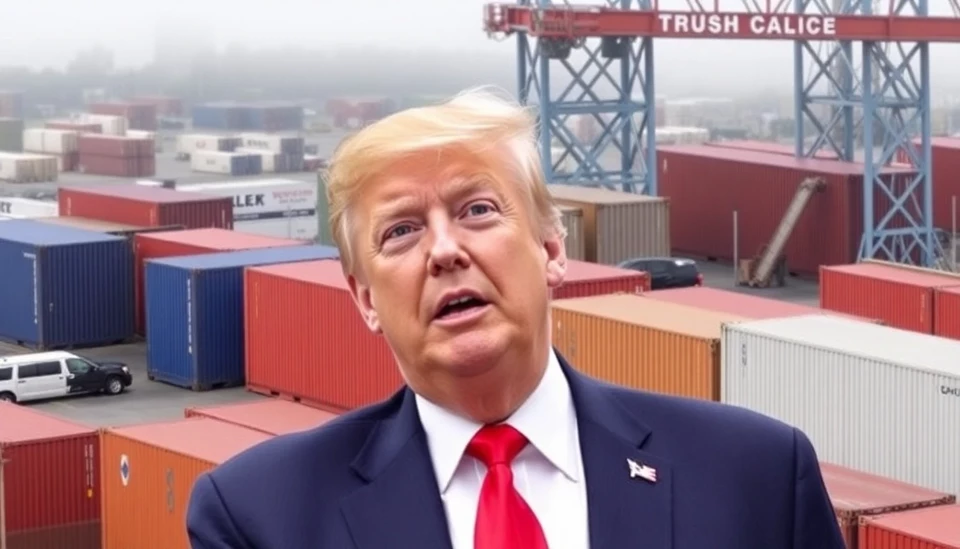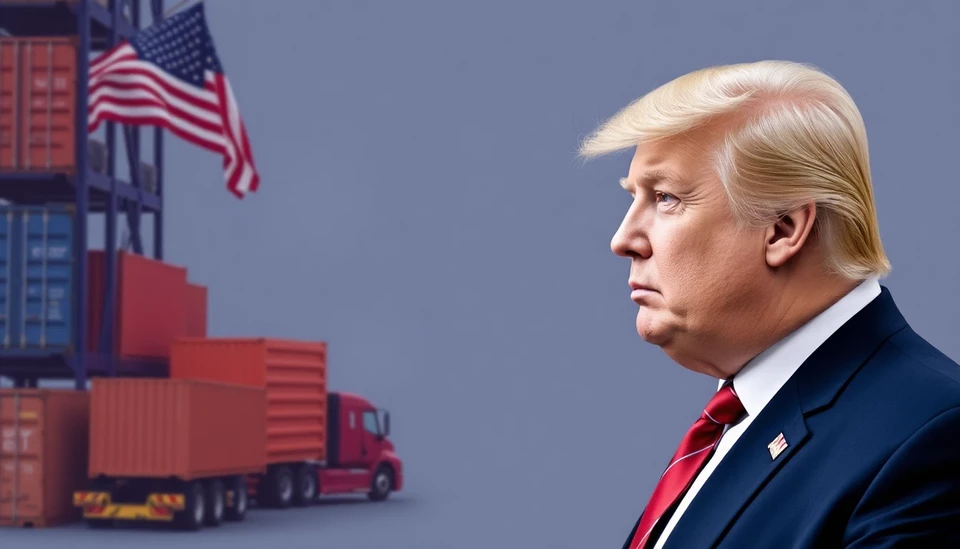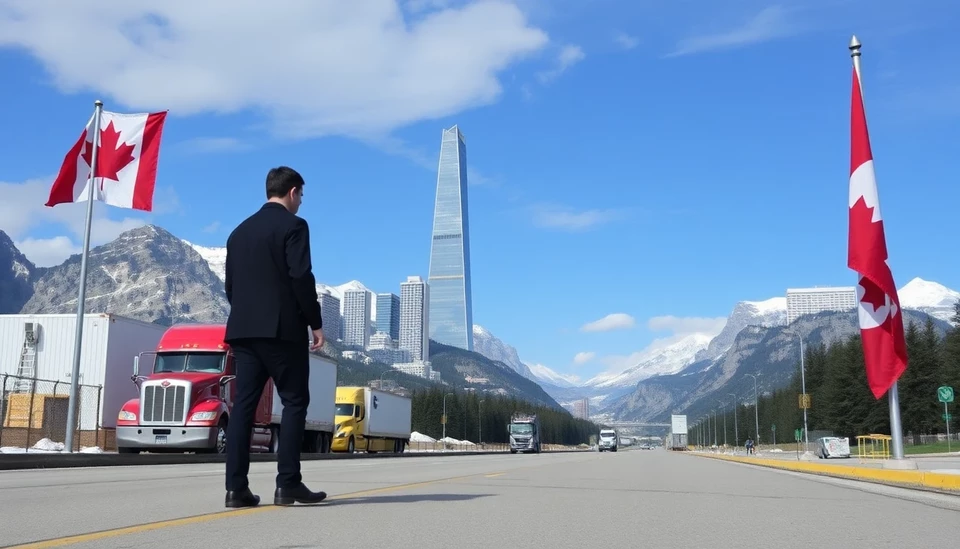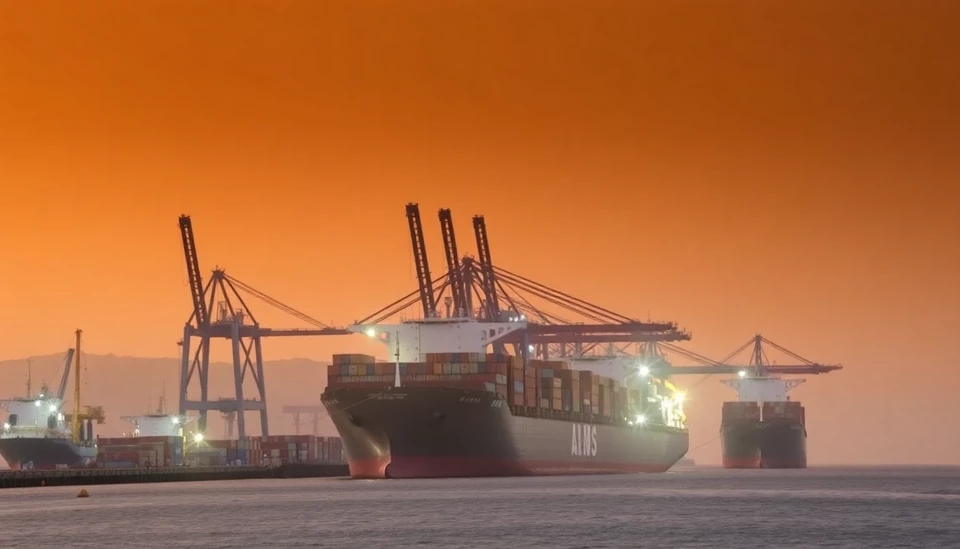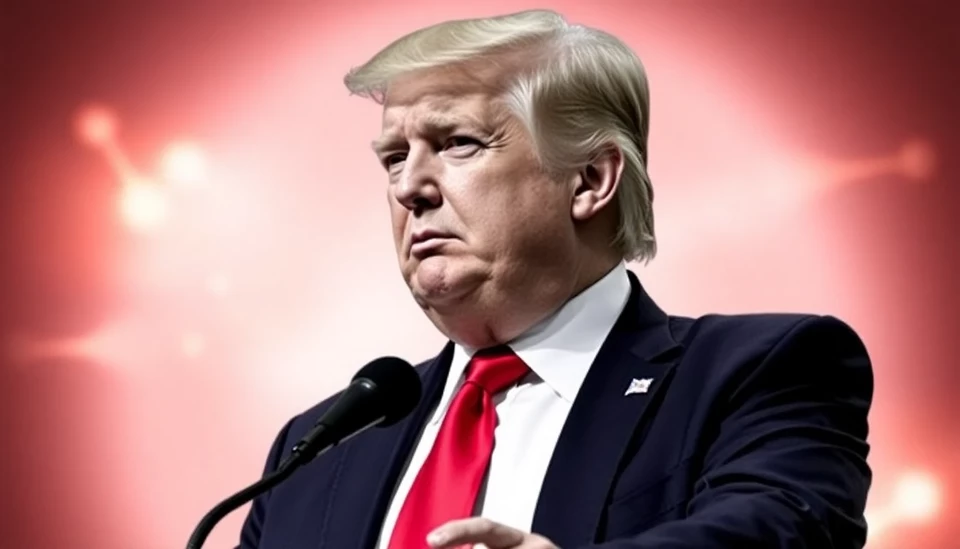
In a climate of rising global tensions, former President Donald Trump has ignited fresh fears with his recent tirades about reinstating tariffs on a range of imports. While Trump’s proposals resonate with a segment of the American populace, they have simultaneously raised alarms among global leaders and economists who are concerned about the repercussions of such protectionist policies.
During a fiery rally in the heartland of America, Trump explicitly called for sweeping tariff increases on products coming from nations he has long deemed unfair trade partners. His rhetoric, reminiscent of his presidency, has reignited debates on trade policies that favor national industries but risk igniting retaliatory measures from affected countries.
Economists from various sectors warn that Trump's renewed focus on tariffs could lead to a destabilization of international markets. Analysts point out that tariffs, while touted as beneficial for domestic manufacturing, often lead to increased prices for consumers and strained relationships with trading partners. Many fear that the return of such aggressive trade tactics could trigger a global economic downturn, reminiscent of the trade wars that characterized Trump’s previous term in office.
As the world watches closely, foreign governments are preparing their responses. Countries that rely heavily on exports to the United States are particularly alarmed by the prospect of a new wave of tariffs. These nations are actively strategizing potential retaliatory measures, which could escalate into a broader trade conflict, further complicating an already tense international economic landscape.
Furthermore, political analysts suggest that Trump’s tariff rhetoric is not merely about economic policy; it is also a strategic maneuver aimed at securing a strong position in the upcoming presidential race. By positioning himself as a defender of American jobs and industries, Trump is likely trying to galvanize support from middle America, which has historically suffered under dynamic global trade patterns.
The chilling effect of Trump’s statements is palpable across various sectors, from agriculture to manufacturing. Farmers, who previously suffered from the fallout of tariffs imposed during the last administration, are particularly anxious. Agricultural exports, which saw a sharp decline previously, could again be at risk if the former president pursues a similar path.
Amidst these developments, some political commentators urge for a calmer, more rational dialogue about America’s trade relationships. They advocate for collaborative approaches that prioritize mutual benefit over antagonism. The global community, they suggest, should push back against protectionist sentiments with appeals for free trade and open communication.
In conclusion, as Trump continues to stir the pot with his tariff proposals, the ramifications for both American consumers and the global economy remain uncertain. The world watches closely, bracing for the potential consequences of a return to the tumultuous trade environment that marked the previous few years of his presidency.
What lies ahead in the arena of international trade will depend heavily on the responses from both national leadership and global markets, making this a pivotal moment in shaping the future of economic relations and policy.
#TrumpTariffs #GlobalEconomy #TradePolicy #EconomicImpact #MakeTradeFair
Author: Rachel Greene
